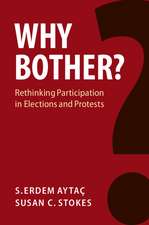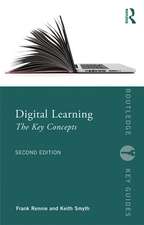Diplomacy and Ideology: From the French Revolution to the Digital Age: Routledge New Diplomacy Studies
Autor Alexander Stagnellen Limba Engleză Hardback – 7 iul 2020
This innovative new book argues that diplomacy, which emerged out of the French Revolution, has become one of the central ideological state apparatuses of the modern democratic nation-state.
The book is divided into four thematic parts. The first presents the central concepts and theoretical perspectives derived from the work of Slavoj Zizek, focusing on his understanding of politics, ideology, and the core of the conceptual apparatus of Lacanian psychoanalysis. There then follow three parts treating diplomacy as archi-politics, ultra-politics, and post-politics, respectively highlighting three eras of the modern history of diplomacy from the French Revolution until today. The first part takes on the question of the creation of the term 'diplomacy', which took place during the time of the French Revolution. The second part begins with the effects on diplomacy arising from the horrors of the two World Wars. Finally, the third part covers another major shift in Western diplomacy during the last century, the fall of the Soviet Union, and how this transformation shows itself in the field of Diplomacy Studies. The book argues that diplomacy's primary task is not to be understood as negotiating peace between warring parties, but rather to reproduce the myth of the state's unity by repressing its fundamental inconsistencies.
This book will be of much interest to students of diplomacy studies, political theory, philosophy, and International Relations.
| Toate formatele și edițiile | Preț | Express |
|---|---|---|
| Paperback (1) | 259.98 lei 6-8 săpt. | |
| Taylor & Francis – 27 mai 2024 | 259.98 lei 6-8 săpt. | |
| Hardback (1) | 1001.55 lei 6-8 săpt. | |
| Taylor & Francis – 7 iul 2020 | 1001.55 lei 6-8 săpt. |
Din seria Routledge New Diplomacy Studies
-
 Preț: 394.38 lei
Preț: 394.38 lei -
 Preț: 326.30 lei
Preț: 326.30 lei -
 Preț: 286.28 lei
Preț: 286.28 lei -
 Preț: 416.22 lei
Preț: 416.22 lei -
 Preț: 408.38 lei
Preț: 408.38 lei - 28%
 Preț: 821.14 lei
Preț: 821.14 lei - 28%
 Preț: 820.73 lei
Preț: 820.73 lei - 23%
 Preț: 320.80 lei
Preț: 320.80 lei -
 Preț: 381.51 lei
Preț: 381.51 lei -
 Preț: 412.19 lei
Preț: 412.19 lei -
 Preț: 469.34 lei
Preț: 469.34 lei - 18%
 Preț: 701.11 lei
Preț: 701.11 lei -
 Preț: 419.92 lei
Preț: 419.92 lei -
 Preț: 264.33 lei
Preț: 264.33 lei -
 Preț: 389.38 lei
Preț: 389.38 lei -
 Preț: 385.11 lei
Preț: 385.11 lei -
 Preț: 387.16 lei
Preț: 387.16 lei -
 Preț: 388.52 lei
Preț: 388.52 lei -
 Preț: 356.49 lei
Preț: 356.49 lei -
 Preț: 311.41 lei
Preț: 311.41 lei -
 Preț: 326.11 lei
Preț: 326.11 lei - 18%
 Preț: 1005.39 lei
Preț: 1005.39 lei - 31%
 Preț: 767.38 lei
Preț: 767.38 lei
Preț: 1001.55 lei
Preț vechi: 1221.40 lei
-18% Nou
191.67€ • 208.12$ • 161.00£
Carte tipărită la comandă
Livrare economică 23 aprilie-07 mai
Specificații
ISBN-10: 0367897792
Pagini: 220
Ilustrații: 4
Dimensiuni: 156 x 234 x 14 mm
Greutate: 0.49 kg
Ediția:1
Editura: Taylor & Francis
Colecția Routledge
Seria Routledge New Diplomacy Studies
Locul publicării:Oxford, United Kingdom
Public țintă
Postgraduate, Professional, and Undergraduate AdvancedCuprins
Notă biografică
Descriere
This innovative new book argues that diplomacy, which emerged out of the French Revolution, has become one of the central ideological state apparatuses of the modern democratic nation-state.
The book is divided into four thematic parts. The first presents the central concepts and theoretical perspectives derived from the work of Slavoj Zizek, focusing on his understanding of politics, ideology, and the core of the conceptual apparatus of Lacanian psychoanalysis. There then follow three parts treating diplomacy as archi-politics, ultra-politics, and post-politics, respectively highlighting three eras of the modern history of diplomacy from the French Revolution until today. The first part takes on the question of the creation of the term 'diplomacy', which took place during the time of the French Revolution. The second part begins with the effects on diplomacy arising from the horrors of the two World Wars. Finally, the third part covers another major shift in Western diplomacy during the last century, the fall of the Soviet Union, and how this transformation shows itself in the field of Diplomacy Studies. The book argues that diplomacy's primary task is not to be understood as negotiating peace between warring parties, but rather to reproduce the myth of the state's unity by repressing its fundamental inconsistencies.
This book will be of much interest to students of diplomacy studies, political theory, philosophy, and International Relations.











